It was on May 9th when electricity workers discovered the body at a barrage across the icy cold waters of the Durance river, at the village of Saint-Martin-de-Queyrières in the foothills of the Alps in south-east France. The spot was about 15 kilometres downstream from where the river begins its course, at 2,400 metres, close to the border with Italy.
The EDF staff found the corpse naked, the woman’s clothes apparently ripped away by the fast-flowing waters, particularly strong from the springtime thaw of the ice and snow above. But while her face was altered, her ring and necklace remained in place. Her dark skin and African braids immediately suggested the likelihood that she was from among the many migrants who risk life and limb attempting to cross into France from Italy along the mountain passes just a few kilometres further north. It is the route many take in a bid to reach the small nearby town of Briançon.
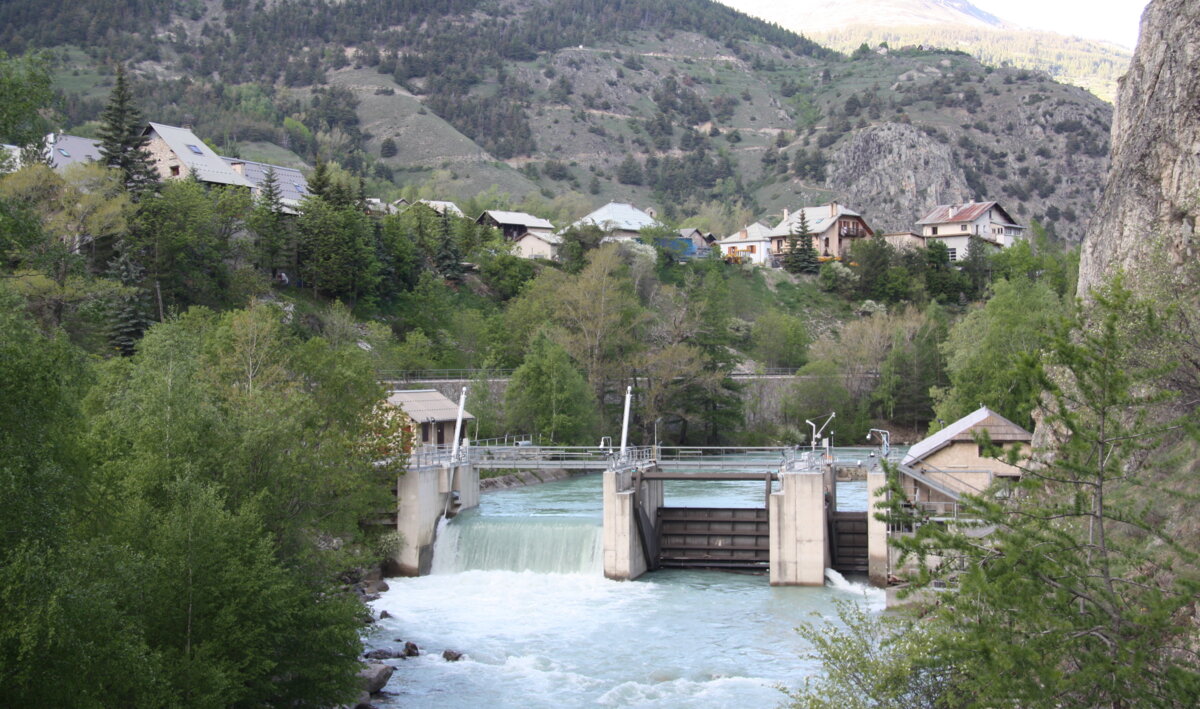
Enlargement : Illustration 1

Many among the volunteers gathered in local associations to help the migrants – providing essential support and shelter and sending out search parties – had long feared such an event, but their concerns were rather that bodies might emerge from under the melting winter snow on the Montgenèvre pass, or the more treacherous pass called the col de l’Échelle. Indeed, last Friday, ten days after the young woman’s body was found, that of a dark-skinned man believed to be an African migrant was discovered by ramblers on a forested path leading down from the Montgenèvre pass.
The dead woman was later identified as Blessing Matthew, a 20-year-old from Nigeria, and a post mortem examination concluded she died from drowning. Blessing was the first migrant known to have died while following the Alpine route into France. Until then, there had been injuries, some severe, and numerous cases of frostbite to feet and hands. Although local activists helping the migrants had already been given her name by them, Blessing was eventually formally identified on May 18th after the authorities carried out a DNA comparison with her older sister Christina.
On the night of May 7th, Blessing set out with several others from a migrant refuge situated at a church in the Italian mountain village of Claviere, at an altitude of 1,800 metres, to make the clandestine crossing into France. Chez Jesus – Jesus’s Place – is managed independently, and numerous migrants regularly find shelter and rest there before venturing out and on to France. The volunteers in the shelter regularly carry out a morning count after those migrants crossing into France confirm that they have reached Briançon safe and well (and without arrest) after what is, by the most direct route, a trek of 17 kilometres.
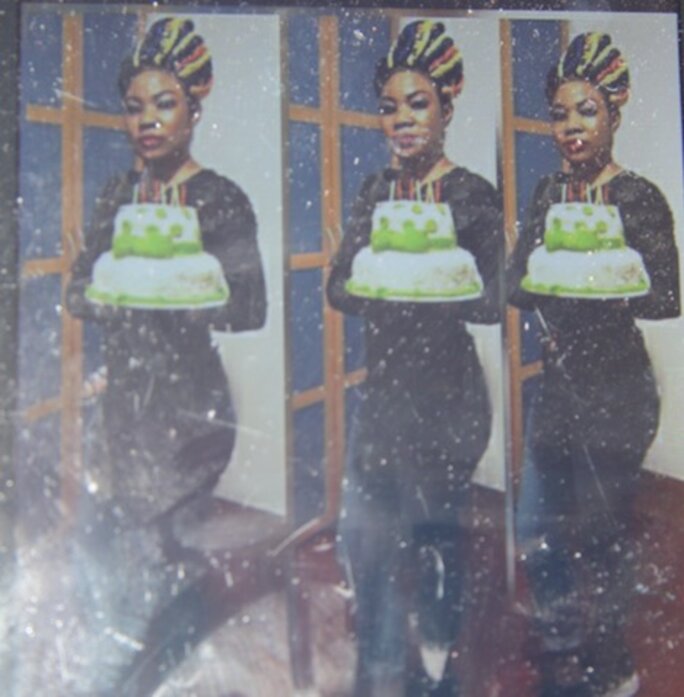
But Blessing never made it. According to witness accounts, including one who repeated to Mediapart details of his statement given to the gendarmerie, she came across a police patrol in the French village of La Vachette, just a few kilometres north of Briançon, having completed the hardest part of her long walk.
The precise circumstances of what happened are still unclear, but among the activists helping the refugees there has for months been heightening concern about the manner in which the police and gendarmeries patrols intercept migrants. Some accuse the patrols of using “cowboy methods”, of playing “cat and mouse games” and setting up “ambushes”. The public prosecution services in the town of Gap, the judicial and administrative centre of the local département (equivalent to a county), the Hautes-Alpes, have ordered a gendarmerie investigation “to establish the cause of death” of Blessing.
What is certain is that the river Durance runs through the village of La Vachette and that its level and strength at this time of the year make its banks a perilous place for anyone to venture on, especially in the event of someone fleeing along them in darkness.
At a railway station in the region, one week after her body was found, Mediapart met with one of the migrants who crossed the border with Blessing that night. “We were eight to depart from Chez Jesus,” said Roland, a juvenile-looking young man with short African braids and wearing a long neckchain. He gave his account while waiting for a night train to Paris, where he planned to arrive before filing a request for asylum in France. “Once we got to La Vachette, at about five o’clock, there were just two of us waiting for Blessing, who was very tired, with cramps.” As he spoke, it was clear that Roland was tense and wary of our questions, choosing his words carefully. “All of a sudden, police appeared with lights and chased us.” Whether Roland came across officers from the national police force or those of the gendarmerie (who in France police mostly rural areas) was unclear.
According to Roland, he, Blessing and the other migrant, Hervé, bolted in different directions. Hervé was caught but Roland found a place to hide, where he remained until about 9am. He said he never knew what became of Blessing.
A woman from La Vachette, sympathetic to the migrants, described how she discovered Roland that morning. “I found him when I went to feed the chickens,” she told Mediapart. “He looked at me, thirsty. I quickly took him inside the house, I didn’t want him to even take the risk of going to fetch his bag.” She contacted local activists who came to her house to discretely take care of him. Roland told them that from where he was hiding he could see the police searching the river banks for some while with their flashlights.
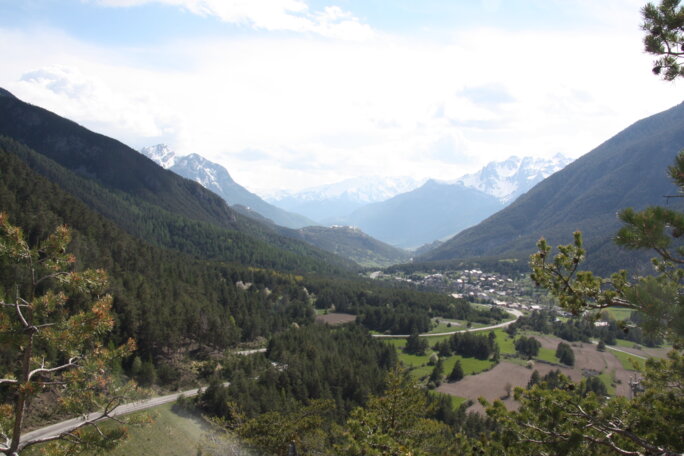
Enlargement : Illustration 3

Members of the ‘Tous migrants’ association which provides aid for migrants, accompanied Roland, along with a lawyer acting for the association, to give his account to the gendarmerie unit investigating Blessing’s death. “It is sad for someone to die like that, I had to say what I knew,” Roland told Mediapart before catching the train for Paris.
Contacted by Mediapart, the Gap public prosecutor’s office, the gendarmerie and the police, and also the Hautes-Alpes prefecture, all declined to give any comment on the alleged presence of a patrol of law enforcement officers in the vicinity of La Vachette overnight on May 7th. Citing the judicial confidentiality of the investigation, they gave no details on the conditions in which any eventual verifications of individuals were carried out, or if emergency service backup had been requested.
From the information made available to them, the local French activists providing support to migrants were able to contact Blessing’s elder sister Christina, 36, who lives in the south of Italy with full legal residence status. Mediapart met her on the Italian side of the Alpine border crossing with France. That day, Blessing’s body had still not been formally identified. Christina, wrapped in a floral-patterned jacket and wearing heart-shaped earrings, asked to be able to see her sister’s remains, but she was refused entry into France. Instead, gendarmerie officers took a DNA sample from her, and which subsequently led to the confirmation that the corpse was indeed Blessing.
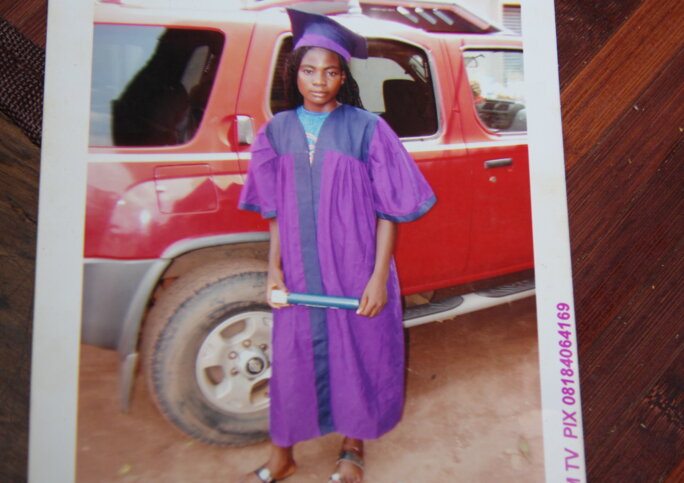
Enlargement : Illustration 4

“My DNA is authorised to enter France but not me to see the body of my sister,” Christina complained. For her, the police or gendarmerie were responsible for her sister’s death, although she did not suspect them of deliberately causing it. “But when you drive someone to the brink of a window and they fall, it’s as if you pushed them,” she said. “And even if it turns out that they then looked for Blessing for hours, that’s not enough. In that case you call for reinforcements, you bring dogs in, you search and search again. The French officers who put immigrants in danger like that, at night, in the cold, they are guilty.”
The sisters’ mother in Nigeria was still unaware of Blessing’s fate. “I don’t want to tell her by telephone without there being people to support her,” said Christina. “So I sent my brother to let her know.” It is ten years since Christina last saw her Blessing, when the elder sister left her home in the Niger Delta region of southern Nigeria for Europe. Nor had she had any contact with Blessing during the latter’s long path from West Africa to France. But she is well aware of the dangers she faced crossing north through Africa, not least that of sexual violence, and during the hazardous and so often deadly clandestine crossing of the Mediterranean Sea. “And Blessing died from drowning in France,” she commented. “Your leaders accept Nigeria’s corrupt president, oil from Nigeria, but not its citizens,” she said suddenly in anger. “There are so few refugees [in France] in comparison with Italy or Libya.” Returning to her sister, she recalled: “When Blessing was a child, she was always told ‘You’re too small, you can’t do this’ but she still tried and always succeeded. She wanted to try everything.”
“I want her to be the first and last to die here,” she added. “France must change.” But days later, the body of the man apparently of African origin was discovered in forested land underneath the Montgenèvre pass.
'Controls in dangerous environments are unacceptable'
Mediapart visited the Chez Jesus shelter on the Italian side of the border, at Claviere, a village close to the Montgenèvre pass, from where Blessing set out to cross into France on the night of May 7th. In the garden of the shelter, set up last winter at the base of a church, two French activists providing help to the migrants, whose names are withheld, recounted that they had heard many accounts of the dramatic manner in which French police or gendarmerie border patrols approach migrants “appearing in a frightening way, pointing their flashlights, running after them”. In that case, said one of the pair, “you don’t think, you run too, and that inevitably produces accidents”.
“The migrants who sleep here all manage to get across, in several goes if they are arrested and brought back to Italy, but they finish by getting across – except for the most vulnerable, children, pregnant women, handicapped people,” said the activist. “This repressive system is like a selection, in fact, it’s physical.”
Max Duez is a recently retired orthopaedic surgeon with the A&E service of a hospital in Briançon. He is also a volunteer with an association, Refuges solidaires, which offers shelter to migrants in a building provided by the town council, where he benevolently runs a medical post. Questioned about the injuries he has come across among migrants, his worst memory is that of two men from Guinea, West Africa, who last summer fell into a ravine after trying to escape from gendarmes who had been lying in wait in a nearby tunnel. One of the two Guineans remains handicapped from his severe injuries. “This year there was also an open fracture of an ankle,” he said of another incident.
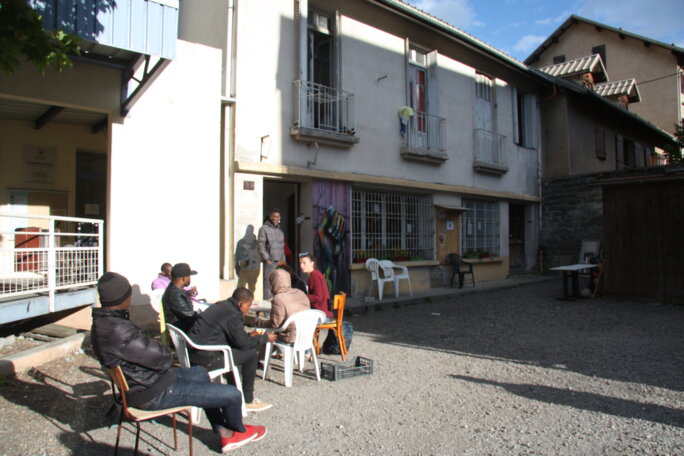
Enlargement : Illustration 5

But Duez said that above all he currently treats migrants for injuries picked up on their long journeys north and which had been poorly attended to (some injuries dating from their passage through Libya), along with frostbite, high blood pressure, scabies, and parasitoses. “When they have their feet in a bowl of warm water, I also do a lot of psychology,” he said. “In short, this year, the lookout parties [by activists bringing help to migrants] have saved many more lives than me.”
Duez says he is not completely against the search patrols carried out by the police and gendarmerie, and has due respect for the emergency rescues carries out by the gendarmerie’s specialist mountain search and rescue unit, the PGHM, but he cautions: “Controls carried out in dangerous environments, whether it be the Mediterranean or in the mountains, are unacceptable. So how can things be done better? Perhaps controls should be limited to the roads? I don’t have the answers, but I know that [such] questions should be asked.”
In a recent statement, and which was addressed at the criticism voiced by associations like ‘Tous migrants’ over the manner in which the border patrols are carried out, the Hautes-Alpes prefecture underlined its “confidence in the forces of law and order” for their respect of deontological regulations which require them “to behave in an exemplary manner in all circumstances” and to “take into account the nature of the risks and threats in each situation”.
The migrant support groups were outraged last year at a decision to close the investigation into the circumstances of the accident involving the two Guinean nationals who fell into a ravine while escaping a gendarmerie patrol, when the authorities cited a lack of evidence that any offences had been committed. This month they filed notice to the Gap public prosecution services of offences they suspect were committed at La Vachette on the night of May 7th. These included “failure to assist a person in danger”, “the deliberate placing in danger of the life of a third party”, and “manslaughter caused by carelessness, negligence or failure to abide by safety requirements”.
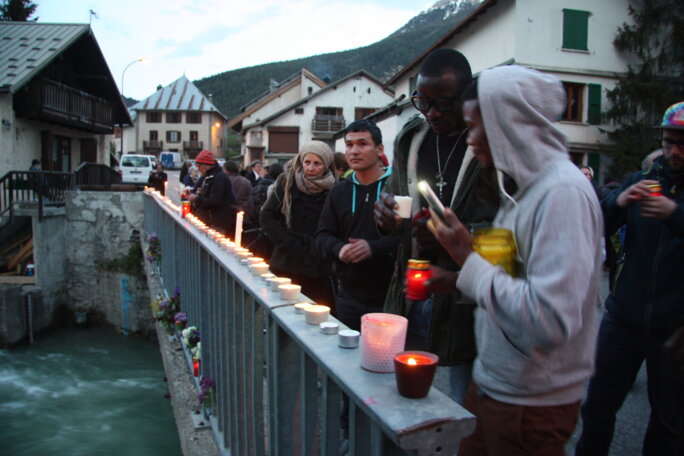
Enlargement : Illustration 6

On May 16th a hommage to Blessing, in the form of a vigil, was held in La Vachette, upon a of bridge that spans the Durance river. “This death is a case too many,” said Michel Rousseau, from the ‘Tous migrants’ association, surrounded by dozens of other activists, many carrying branches of lilac flowers. “The ambushes must be banned, otherwise where is the notion of ‘discernment’ that is allowed for in the [deontology principals of the] home security law code? Within the collective, we say that there are illegal practices. And we’re criticised for talking nonsense? And what about the rights’ ombudsman [the upholder of human rights in France who has criticised the treatment of migrants in the country]? The CNCDH [French public institution for the protection and promotion of human rights, also critical of the treatment of migrants in France]. The pope? The archbishop? The administrative tribunal in Nice [which ruled against a decision by a local prefect to send back to Italy 20 unaccompanied minors, all African nationals who crossed into France]? Are they all supposed to be bandits?”
Benoît Ducos was the next to speak. Earlier this year he was brought in for questioning by the French border police guards over his actions in helping in this same Alpine region a group of Nigerian clandestine immigrants, and notably a woman among them who was on the point of giving birth in the snow-covered wilds and who he led to a local hospital. “Where is this ‘discernment’?” asked Ducos, a former ski rescue patrolman, to a backdrop of silence. Tears ran down his cheeks and for a moment the only sound was from the rushing waters of the Durance river.
Here, at La Vachette, its fierce course is the beginning of a more than 300-kilometre journey that takes it to the town of Avignon, carving its way through the Provence region of south-east France where it has long occupied a singular place in local folklore. The 20th-century French writer Jean Giono, one of the region’s most celebrated authors, wrote of the Durance: “It’s not that she’s malicious, but for her, good and evil are the same.”
-------------------------
- The French version of this report can be found here.
English version by Graham Tearse


